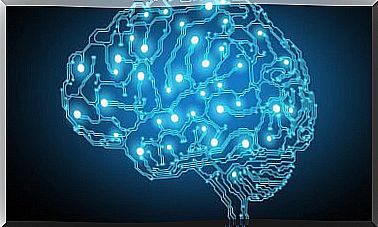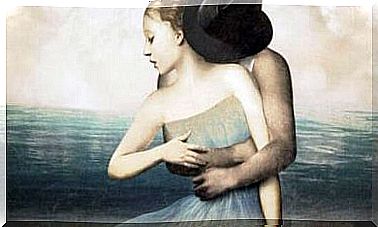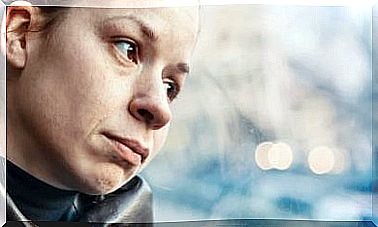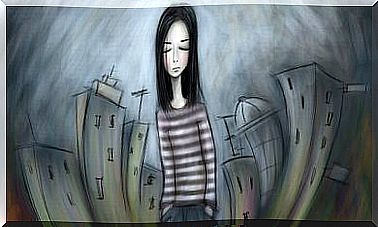Good People Don’t Change Because They Think With Their Hearts

Bad things happen to good people too. Because fate is arbitrary, the world is blind, and selfishness is sometimes very sharp. However, noble people never renounce their roots despite their disappointments, because whoever thinks with his heart does not understand contempt or cold reasons.
We all know people with this profile. Not only that, every time we see a gesture of nobility, disinterested altruism, or a heroic attitude, most of us feel inspired or even reconciled to the world itself. A very similar thing happened recently, in the dramatic attack in the heart of London last 22 March.
Tobias Ellwood, deputy parliamentary secretary at the Foreign Ministry, had no qualms about leaving the Westminster Parliament despite the recommendations. I wanted to help. For several minutes he did his best to save the life of an injured policeman, pressing down on the wound and breathing through mouth to mouth until a helicopter arrived. It was not possible. Her gestures of impotence and despair at not being able to save him went around the world.
We all empathize with your pain. The next day, the entire political spectrum praised his ability to react to the rest, and the determination that, far beyond fear, fanfare or indecision, made him act with the determination of those who just want to help, of those who prioritize the others above all.

Good people: is it better to feel good or do good?
The question may seem a little strange: which is better? Investing in your own well-being or prioritizing the well-being of others? It is very likely that many of the readers will tell themselves that the answer is easy, as something as simple as doing good already has a bearing on balance and personal satisfaction. However, this conclusion is not so clear to experts. In fact, this same idea has intrigued experts in human behavior for several years.
What research shows us
Researchers at UCLA (University of California) conducted an interesting research where they were able to conclude that there are two types of vital purposes in humans, and that each of them has biological implications.
These are the data.
- There are people who are characterized by aspiring for a hedonistic well-being. That is, a type of happiness that has its origin exclusively in self-satisfaction, in the existential pursuit of one’s well-being.
- On the other hand, what is known as “ eudaimonic well-being ” was also defined . It is another kind of much deeper and higher purpose, in which a person seeks to develop and grow in order to give his best to others.

Conclusions
The research found that people with a clear eudaimonic predisposition (has others high on their priority scale) had a stronger immune system. It was proven that they developed less inflammation and that they had more antibodies, synonymous with a stronger immune system.
Similarly, at the psychological level it was possible to prove that they were profiles of strong convictions. It didn’t matter how many times life had toppled them, the disappointments experienced or the losses suffered. They continued to think with their hearts, they continued to prioritize others and to trust in the nobility of the human being.
On the other hand, hedonistic individuals have been shown to have fewer antibodies, a weaker immune system, and a more erratic, fickle, and variable personality.
After all, thinking and acting from the heart is worth it
It is likely that many of us have gone through a phase where our own existential aspiration has been purely hedonic. Far from seeing it as a clear reflection of an act of selfishness, it is necessary to understand it as another step in our own personal growth. Sometimes we are simple explorers. We want to experience, let ourselves be embraced by life, aspire to it, rejoice and consume it in big chunks.
However, little by little we ascend the pyramid of our needs until we understand that we are an interconnected whole, a wonderful and complex interrelated web where our actions resonate with others. To do good, to act from the heart, is to add harmony to chaos, it is to be a lighthouse in the midst of darkness or confusion, as Congressman Ellwood did trying to save the life of Keith Palmer, the policeman stabbed by the terrorist.

Believe it or not, the fact that we are good people does not require us to be heroes, it does not require us to be involved in taking risky actions for others, nor does it require us to please the entire humanity of the planet. Good people make it happen every day, they are discreet but luminous, silent but joyful, humble but immense, like their own heart.
We must sow with kindness and respect our daily actions, putting our eyes on the smallest things. So, when the opportunity comes to make big changes, the movement we’ve already created will help us. It is in this horizon of daily work that well-being is above simple hedonism and where we can be a source of inspiration that infects the world.
Images courtesy of Jiwoon Pak.









